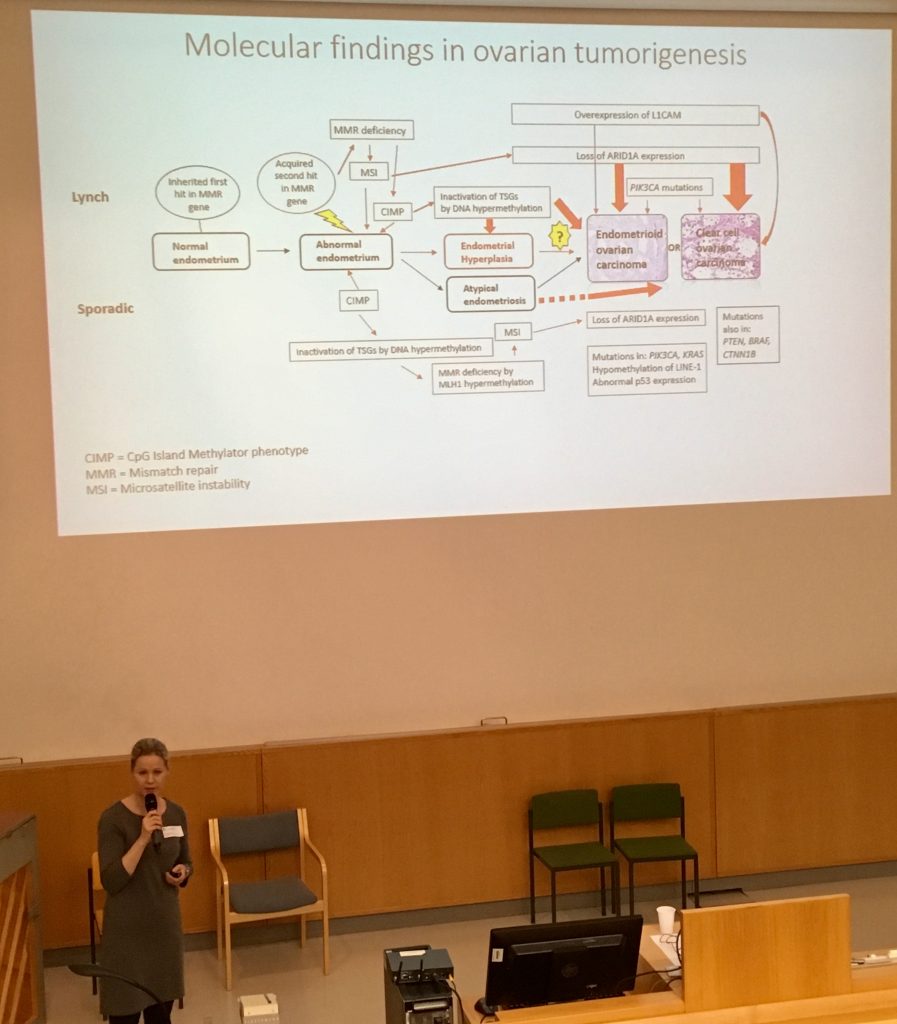Niskakoski A, Pasanen A, Lassus H, Renkonen-Sinisalo L, Kaur S, Mecklin J-P, Bützow R and Peltomäki P
Molecular alterations preceding endometrial and ovarian cancer and the sequence of events are unknown. Consecutive specimens from lifelong surveillance for Lynch syndrome provides a natural setting to address such questions. To molecularly define the multistep gynecological tumorigenesis, DNA mismatch repair gene mutation carriers with endometrial or ovarian carcinoma or endometrial hyperplasia were identified from a nation-wide registry and endometrial biopsy specimens taken from these individuals during 20 years of screening were collected. A total of 213 endometrial and ovarian specimens from Lynch syndrome individuals and 197 histology-matched (non-serous) samples from sporadic cases were available for this investigation. The specimens were profiled for markers linked to endometrial and ovarian tumorigenesis, including ARID1A protein expression, mismatch repair status, and tumor suppressor gene promoter methylation. In Lynch syndrome-associated endometrial and ovarian carcinomas, ARID1A protein was lost in 61–100% and mismatch repair was deficient in 97–100%, compared to 0–17% and 14–44% in sporadic cases (P = 0.000). ARID1A loss appeared in complex hyperplasia and deficient mismatch repair and tumor suppressor gene promoter methylation in histologically normal endometrium. Despite quantitative differences between Lynch syndrome and sporadic cases, ARID1A expression, mismatch repair, and tumor suppressor gene promoter methylation divided endometrial samples from both patient groups into three categories of increasing abnormality, comprising normal endometrium and simple hyperplasia (I), complex hyperplasia with or without atypia (II), and endometrial cancer (III). Complex hyperplasias without vs. with atypia were molecularly indistinguishable. In conclusion, surveillance specimens from Lynch syndrome identify mismatch repair deficiency, tumor suppressor gene promoter methylation, and ARID1A loss as early changes in tumor development. Our findings are clinically relevant for the classification of endometrial hyperplasias and have potential implications in cancer prevention in Lynch syndrome and beyond.
Mod Pathol. 2018 Mar 27. doi: 10.1038/s41379-018-0044-4. [Epub ahead of print]
PMID: 29588532
